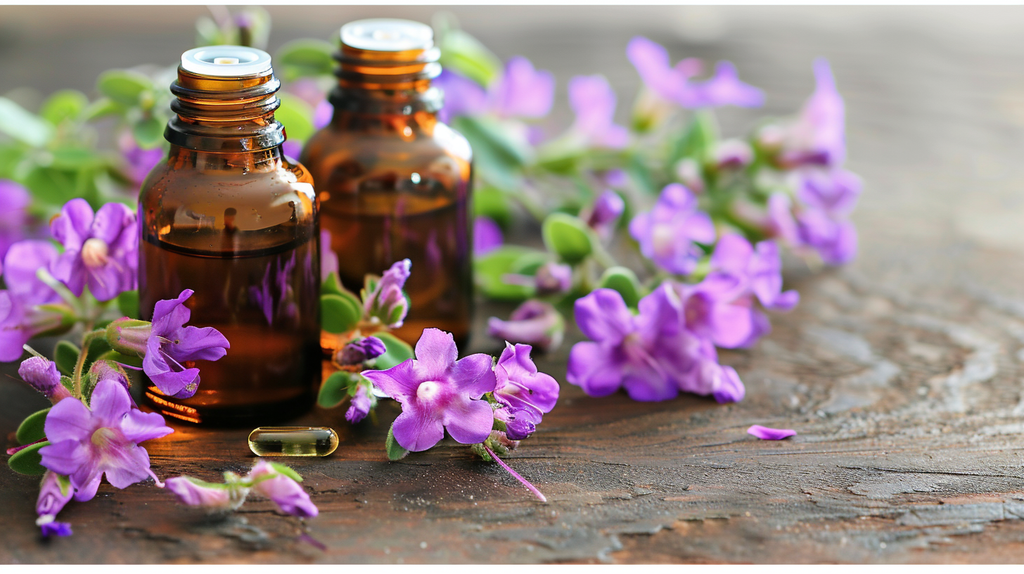Mindfulness is the practice of bringing one’s attention to the present moment in a non-judgmental way. It involves observing our thoughts, feelings, and sensations without getting caught up in them. This can be achieved through various techniques such as meditation, yoga, and mindful eating.
Key Takeaways
| What is Mindfulness? | A practice of focusing your attention on the present moment without judgment. |
|---|---|
| Benefits of Mindfulness: | Reduced stress and anxiety, improved emotional regulation, increased focus and concentration, enhanced self-awareness, and better sleep quality. |
| Techniques for Mindfulness: | Meditation, mindful breathing, mindful movement (yoga, tai chi), mindful eating, and active listening. |
| Incorporating Mindfulness into Daily Life: | Start small and gradually increase practice duration. |
| Real-world examples: | Mindful walking during your commute, mindful eating during lunch break, mindful breathing before a presentation. |

As a naturopath with a focus on holistic wellness, I believe mindfulness is a powerful tool for managing stress and promoting emotional balance. By bringing these practices into your daily routine, you can find greater peace, clarity, and well-being in your life.
Incorporating Mindfulness into Everyday Life: Techniques for Stress Reduction and Emotional Balance
Feeling overwhelmed and stressed is a common experience. We juggle work deadlines, family obligations, and social commitments, often leaving us feeling depleted and out of balance. Chronic stress can have a significant impact on our physical and mental health, leading to anxiety, depression, and even physical ailments.
Mindfulness is the practice of focusing your attention on the present moment without judgment. It involves becoming aware of your thoughts, feelings, and bodily sensations in a non-reactive way.
Using mindfulness, we can learn to observe our thoughts and emotions without getting caught up in them. This allows us to respond to situations more thoughtfully and effectively, rather than reacting impulsively.
Benefits of Mindfulness
Research has shown that mindfulness offers a wide range of benefits for our mental and physical health. Here are some of the key advantages:
-
Reduced Stress and Anxiety: Mindfulness helps us become aware of stress triggers and develop healthy coping mechanisms. By focusing on the present moment, we can break free from worry and rumination about the past or future.
-
Improved Emotional Regulation: Through mindfulness, we learn to observe our emotions without judgment. This allows us to manage difficult emotions more effectively and cultivate a sense of inner peace.
-
Increased Focus and Concentration: Mindfulness practices can improve our ability to focus on the task at hand and reduce distractions.
-
Enhanced Self-awareness: Mindfulness helps us become more aware of our thoughts, feelings, and bodily sensations. This increased self-awareness can be a powerful tool for personal growth.
-
Better Sleep Quality: Mindfulness practices can promote relaxation and improve sleep quality.
Techniques for Improving Mindfulness
There are many different mindfulness techniques that you can incorporate into your daily routine. Here are a few of the most common:
-
Meditation: Meditation is a formal practice of focusing your attention on a single point, such as your breath or a mantra. There are many different meditation techniques available, so you can find one that suits your needs and preferences.
-
Mindful Breathing: Mindful breathing is a simple and effective way to bring your attention into the present moment. Focus on your breath, feeling the rise and fall of your chest or abdomen with each inhalation and exhalation.
-
Mindful Movement: Practices such as yoga and tai chi combine physical movement with mindfulness. By focusing on your breath and bodily sensations as you move, you can cultivate a sense of present-moment awareness.
-
Mindful Eating: Mindful eating involves paying attention to the experience of eating without judgment. Slow down, savor your food, and notice the taste, texture, and aroma. This can help you to eat more intuitively and avoid overeating.
-
Active Listening: Active listening is the practice of paying full attention to the person speaking without interrupting. Focus on understanding their message rather than formulating your response.
Incorporating Mindfulness into Daily Life
The key to incorporating mindfulness into your daily life is to start small and gradually increase the duration of your practice. Even a few minutes of mindfulness each day can make a big difference. Here are some tips for getting started:
- Find a quiet place where you won't be interrupted.
- Set a timer for a few minutes (start with 2-3 minutes and gradually increase).
- Focus on your breath. Feel the sensation of your breath moving in and out of your body.
Integrating Mindfulness Throughout Your Day: Real-world Examples
Mindfulness isn't confined to a meditation cushion. The beauty of this practice lies in its versatility. You can cultivate present-moment awareness throughout your day, weaving it into seemingly mundane activities. Here are some real-life examples to spark inspiration:
-
Mindful Morning Routine: Instead of rushing through your morning routine on autopilot, slow down and savor each step. Notice the warmth of the shower water on your skin, the smell of your coffee brewing, or the gentle sunlight streaming through the window.
-
Mindful Commute: During your commute, transform your journey into a mini-meditation. If you walk, focus on the rhythm of your steps and the sensations in your body. If you take public transport, observe the world around you without judgment. Notice the people, the sounds, and the sights.
-
Mindful Tech Breaks: In our hyper-connected world, it's easy to get sucked into a social media vortex. Schedule regular tech breaks throughout your day. During these breaks, take a few deep breaths, stretch your body, or simply gaze out the window and observe the scenery.
-
Mindful Meals: Make mealtimes an opportunity to practice mindful eating. Turn off distractions like TV or your phone. Savor each bite, noticing the taste, texture, and aroma of your food. Chew thoroughly and appreciate the nourishment your body is receiving.
-
Mindful Chores: Even household chores can be transformed into mindful activities. When washing dishes, focus on the feel of the warm water on your hands and the sound of the clinking dishes. When folding laundry, feel the texture of the fabric and appreciate the simple act of putting things in order.
-
Mindful Interactions: Our daily interactions offer rich opportunities for mindfulness. When talking with someone, give them your full attention. Listen actively, make eye contact, and avoid interrupting. This fosters deeper connection and allows you to truly be present in the conversation.
Take a look at our other articles:
Herbal Allies for Women's Health: Balancing Hormones and Enhancing Fertility Naturally
The Healing Embrace of Nature: Forest Bathing
The Importance of Emotional Wellness: Resilience, Joy, and Peace
Building a Sustainable Mindfulness Practice
Remember, mindfulness is a journey, not a destination. There will be days when your mind wanders, and that's perfectly okay. The key is to gently bring your attention back to the present moment without judgment. As you adjust your practice, you'll find that mindfulness becomes more natural into your daily life.
Here are some additional tips for building a sustainable mindfulness practice:
- Find a mindfulness practice you enjoy. Experiment with different techniques until you find one that resonates with you.
- Be patient and kind to yourself. Don't get discouraged if your mind wanders. Simply bring your attention back to the present moment.
- Practice regularly. Even a few minutes of mindfulness each day can make a big difference.
- Find a mindfulness buddy. Practicing with a friend or family member can help you stay motivated.
- Seek professional guidance. If you're interested in deepening your practice, consider working with a mindfulness teacher or therapist.
By incorporating mindfulness into your daily life, you'll find yourself better equipped to navigate life's challenges and appreciate the simple joys of the present moment.










